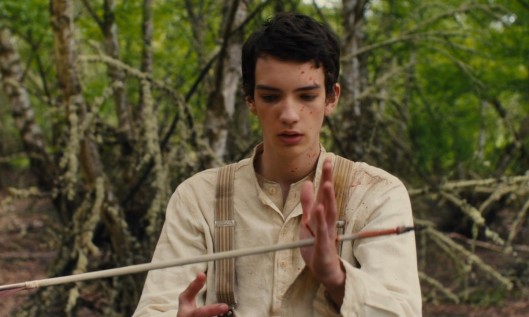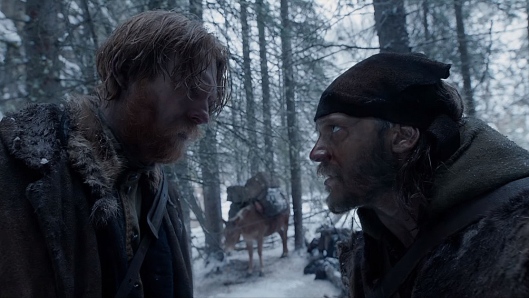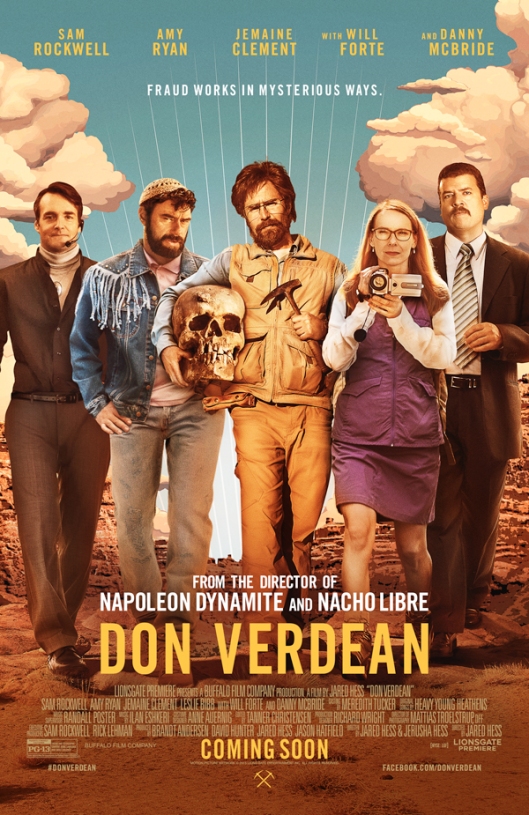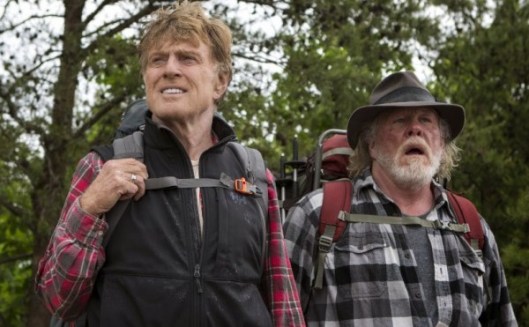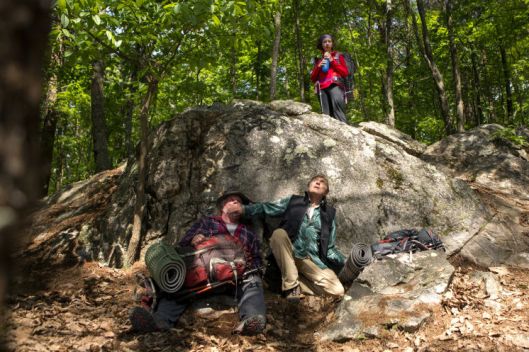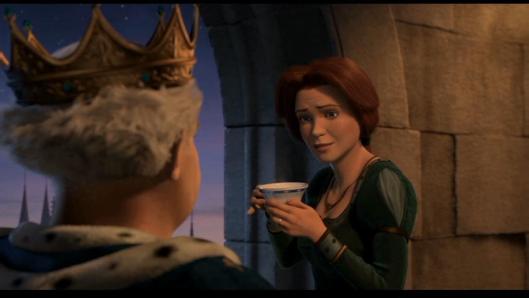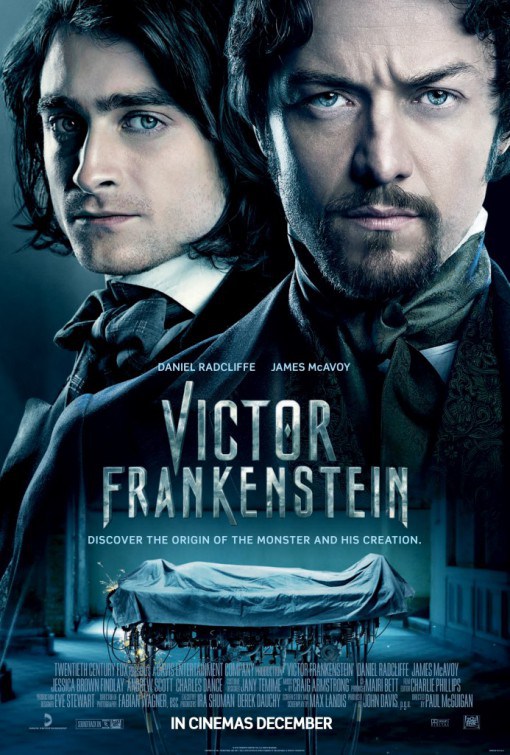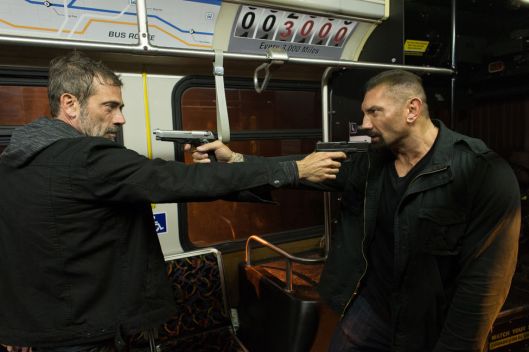Overview
Well, that’s another year over with, another year in which we were promised much in principle but were seriously let down in practice. For every trailer that offered us an amazing cinematic experience it seemed as if the opposite had to be true when the movie finally arrived, and the offer was an empty one. With only two exceptions – Mad Max: Fury Road and Star Wars: The Force Awakens – the big-budget Hollywood blockbusters, the tentpole movies, were all disappointing. Furious 7 abandoned any attempt at retaining the minimum credibility that episodes five and six clung on to, while Avengers: Age of Ultron was bloated and unwieldy (as well as a rehash of the first Avengers movie).
As the year progressed we were treated – if that’s the right word – to reboots galore. We had Jurassic World, a surprise success at the box office that followed the template of Jurassic Park so closely you could have been forgiven for thinking you were watching a straight-up remake rather than a reboot. And we had Terminator: Genisys, a reboot so convoluted it quickly disappeared inside its own internal logic (or lack of it) and never found its way out again.
The summer brought us The Man from U.N.C.L.E. (shiny but vapid), Pixels (a great idea predictably ruined by Adam Sandler’s involvement), and the utterly disastrous Fantastic Four (no other comment needed). As the year continued we suffered through ill-advised misfires such as The Transporter Refueled and Pan, before being ambushed by James Bond himself in the far from thrilling Spectre. All in all, 2015 hasn’t been the best year for movies with huge promotional budgets stacked on top of huge production budgets.
So let’s get the 10 Worst Movies of 2015 out of the way. There were plenty to choose from, but these really did screw the pooch on almost every level.
10 Worst Movies of 2015
10 – Pan – when Neverland rocks to the sound of Nirvana’s Smells Like Teen Spirit then you know things aren’t going to work out for the best; unnecessary and tiring to watch.
9 – Mortdecai – when this was released back in January, it seemed unlikely that there could be a worse movie in 2015 – how wrong could we be? But this is still dire, unfunny stuff that is probably still causing Terry-Thomas to roll in his grave.
8 – Fifty Shades of Grey – we all knew it was going to be bad, and on that level it didn’t disappoint, but it was the complete lack of chemistry between Dakota Johnson and Jamie Dornan that further hurt its chances of being taken seriously. The true masochism came from watching it all the way through.
7 – Jupiter Ascending – delayed from its original 2014 release date, this space opera from the Wachowskis was more like space junk, and featured a badly miscast Mila Kunis as a toilet cleaner-cum-princess. Pretty to look at but as empty as the void between the stars it depicts.
6 – The Boy Next Door – with its “be careful who you shag” central premise and defiantly unerotic approach, this was laughable for all the wrong reasons, not least the speed with which Jennifer Lopez’s cheated on wife jumps in the sack with her hunky neighbour – as you do.
5 – The Transporter Refueled – when the makers can’t even spell their movie’s title properly you just know it’s going to be bad across the board. Ed Skrein makes Jason Statham look like Laurence Olivier, the plot gives new meaning toi the word ridiculous, and the stunts are distinctly underwhelming – so what was the point?
4 – Child 44 – possibly the worst literary adaptation of the year, this lacked everything needed of a good thriller, and wasted the talents of its experienced cast. When you don’t care if the killer is caught is when you know a movie isn’t working.
3 – Poltergeist – a remake that nobody wanted with a cast that weren’t even trying, this wasn’t even scary either, leading everyone to wonder why on earth it was greenlit in the first place.
2 – Paul Blart: Mall Cop 2 – unapologetically dire, this is (allegedly) comedy at its most dispiriting. Painful to watch, and a movie that will leave your ribs untickled throughout, any idea of a third movie should be trampled on the moment it’s thought of.
1 – Fantastic Four – it couldn’t be any other movie, could it? Another movie where you have to ask yourself, didn’t anyone realise how bad this was going to turn out, and if they did, why didn’t they say something?
(Dis)honourable mentions: Blackhat, Hitman: Agent 47, Pixels, The Lazarus Effect, Aloha
5 Most Disappointing Movies of 2015
The year saw a variety of movies released that failed to fulfil their potential, and proved less than engrossing or entertaining. All of the following were movies that came with good advance word but though they weren’t bad per se, they still proved to be letdowns for one reason or another.
5 – Legend – Brian Helgeland’s uneven look at the criminal career of the Kray twins (brilliantly brought to life by Tom Hardy) lacked focus and didn’t really seem interested in them as gangsters, making the end result less than compelling.
4 – Southpaw – Jake Gyllenhaal, on a roll in recent years, plus Antoine Fuqua, equals: a boxing movie where the main character is unlikeable, and the story quickly descends into a murkily realised attempt at securing redemption – but without any emotional weight behind it.
3 – Tomorrowland: A World Beyond – an original sci-fi movie from Brad Bird, starring George Clooney, and a healthy dose of wonder? What could go wrong? Enough to rob the movie of its charm by the halfway mark and to turn it into a humourless plea for everyone to just get along and not be so selfish.
2 – Spectre – with every Bond movie there’s a huge degree of hype attached to it, but after the success of Skyfall (not entirely deserved, at that), this seemed to have accrued more than its fair share. Largely aimless, this outing tried to be clever in linking itself to the three previous movies with Daniel Craig, but ended up feeling and looking muddled and unsure of itself.
1 – Crimson Peak – terrific production design can’t compensate for a lack of story ideas in Guillermo del Toro’s Gothic romance. Worst still, he forgot to make it scary, a problem the movie never recovers from.
10 Best Movies of 2015
There was a point – somewhere around late September/early October of 2015 – when it looked as if this year’s Top 10 might only be a Top 6. The dearth of really good movies in the first half of the year made it seem as if the year wouldn’t – or couldn’t – catch up on itself. But since October, 2015 has got itself back on track and there’s been a handful of movies that have been released that have redressed the balance. The top three proved easy to choose, as they stood head and shoulders above the rest, but the rest of the list was trickier to place; even now it’s not certain that they’ll stay where they are in the list in a few days’ time.
10 – Bridge of Spies – Spielberg + Hanks + Cold War thriller = a happy audience, as this true story unfolds with all the fascination of a good fictional spy thriller. That it’s all true adds to the effectiveness and polish of Spielberg’s handling of the material, and there’s another effortless performance from Hanks to revel in.
9 – Slow West – an early contender for this year’s best Western, this tale of a lovelorn young Scotsman travelling the West to find his true love is refreshing and poignant beneath the expected violence, and features yet another compelling performance from the ubiquitous Michael Fassbender.
8 – Mad Max: Fury Road – high-octane thrills and spills galore in a movie that revels in being as gloriously, outrageously kinetic as possible. George Miller has no equal when it comes to making this kind of movie, and watching it was like getting to unwrap a very early Xmas present.
7 – Spotlight – a slow-burning drama about the newspaper investigation in 2001 that exposed the extent of sexual misconduct by priests in the Catholic Church, this is potent stuff that’s sharply directed by Tom McCarthy and acted by a very talented cast. Quietly shocking, it has a cumulative effect in terms of the abuse it exposes, and is all the better for approaching the material in an unshowy, respectful manner.
6 – Inside Out – a wonderful return-to-form for Pixar, and one of their best movies over all, this look inside the mind of a teenage girl is full of sharp observations and droll humour. It’s also a beautifully realised movie, with Riley’s mind a fantastic cornucopia of visual ideas and creativity.
5 – Macbeth – the teaming of Michael Fassbender and Marion Cotillard was an inspired idea as together they make this one of the best-acted Shakespeare adaptations ever filmed. Brimming with violent imagery and psychological resonance, this breathes new life into the text and makes for a gripping, disturbing experience.
4 – The Witch – an unnerving psychological horror movie about the disintegration of a Puritan family following the abduction of an infant child, this is unsettling and darkly poetic. The horror is palpable, and the performances superbly modulated to provide the maximum emotional impact, making this an outstanding movie that is hard to let go of after it’s ended.
3 – Me and Earl and the Dying Girl – easily the best indie movie released in 2015, this simple yet elegant tale of friendship won and lost and won again is heartfelt and quietly profound. With some pertinent points to make about loving and belonging, this is fresh, funny, engaging and charming in equal measure, and features wonderful performances from Thomas Mann, RJ Cyler and Olivia Cooke.
2 – The Revenant – visually stunning, Alejandro González Iñárritu’s latest is a brutal, uncompromising tale of survival and revenge in 1820’s Missouri that grabs the attention from its opening sequence and keeps the viewer hooked right through to the end. A triumph just in terms of the logistics of making the movie under harsh conditions, and with excellent performances by Leonardo DiCaprio and Tom Hardy, this is raw, vital stuff that finds so many different ways to amaze its audience.
1 – Carol – an almost flawless piece of movie making, the latest from Todd Haynes features outstanding performances from Cate Blanchett and Rooney Mara, and excels in its recreation of Fifties’ America and the social and sexual mores of the time. Love has never seemed so vital and so fragile at the same time, and thanks to a script that teases out each nuance of the relationship between Carol and Therese, the movie is both passionate and profound.
Looking ahead…
2016 is already all about the bigger pictures, the would-be blockbusters such as Captain America: Civil War and Batman v Superman: Dawn of Justice. With superheroes still trying to dominate the cinematic landscape, it’s even harder to determine which movies will emerge from under the shadows of the MCU and DC and make an impact on audiences who don’t need huge explosions and lots of running around in costumes to satisfy their cinematic needs.
But if I had to pick five movies from 2016 that I hope will do exactly that, it would be these: Everybody Wants Some; Hail, Caesar!; Finding Dory; The Finest Hours; and The Light Between Oceans. Each of these will (hopefully) bring something adventurous and different to the screen, and with the talent involved – and yes, that doesn’t necessarily mean anything – each should be at least vying for a space on the 10 Best list this time next year. So let’s hope that 2016 improves on 2015, and watching movies becomes an even more enjoyable pastime.









